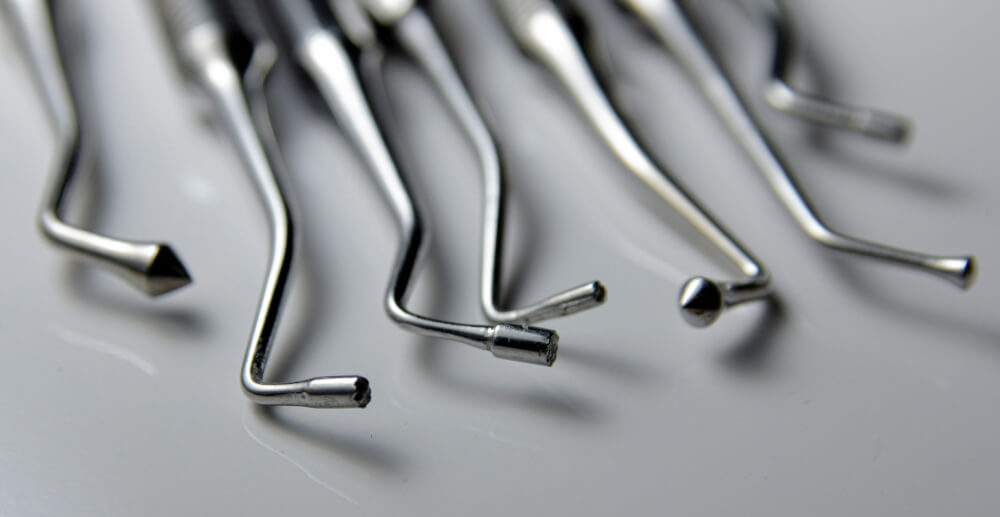To raise awareness for National Eating Disorder Week, Justin, one of the coaches at Workit is here to share his experience with identifying his binge eating disorder.
I discovered my Binge Eating Disorder when I was about 20 sitting in my first semester of college. I was taking my Human Behavior and the Social Environment class for my social work program. Studying to help others I realized that maybe I needed some assistance myself; go figure! I joined support groups in the hopes to arrest my disease, studied it independently, and then eventually sought therapy where I was “officially diagnosed.”
In between those stages, I ended up attending Overeaters Anonymous, a 12 Step group all-around compulsive food behaviors. Despite the misleading name, the group accepts anybody who has a problem with food, whether that be overeating, binge eating, purging, or severe restriction. During my first set of meetings, I took note of the language being used within the groups. I would often hear individuals identify themselves as a “compulsive overeater”, some would call themselves a “sugar addict” or simply an “addict”. In my mind, I thought me having binge eating disorder meant that I was an addict; I thought that they were synonymous. Later I discovered that while they overlap in areas, they technically have two different meanings; because of this, I identify as both, but someone may only identify as one or the other.
What are the differences?
The biggest differentiation between Binge Eating Disorder (BED) and Food Addiction is Binge Eating Disorder is a diagnosable mental health disorder within the Diagnostic and Statistical Manual of Mental Disorders 5 (DSM-V). There are certain symptoms and criteria to meet the requirements of any eating disorder, let alone any mental health condition. In order to meet criteria for BED alone, you have to meet both of the following requirements:
- Consuming an abnormally large amount of food in a short period of time compared with what others might eat in the same amount of time under the same or similar circumstances
- Experiencing a loss of control over eating during the episode
On top of those symptoms, you also must meet at least 3 of these symptoms:
- Consuming food faster than normal
- Consuming food until uncomfortably full
- Consuming large amounts of food when not hungry
- Consuming food alone due to embarrassment over how much one is eating
- Feeling disgusted, depressed, or guilty after the binge
Finally, you must be experiencing these symptoms for at least 3 months and these symptoms cannot be related to any other disorder. An example of the latter would be if someone met the diagnostic criteria of Anorexia-Nervosa but was binge eating in an attempt to control their disorder, much like binge eaters do when they starve themselves to lose weight they have significantly gained and to attempt to gain control of their disorder for a short period of time. Another reason for this could be grief — losing a loved one that is close to you. For a few months, while you sort your feelings, you are eating your feelings. However, that would become an eating disorder if one or two years after that individual passed away you were still binge eating.
Food addiction is technically not a diagnosable disorder. The biggest reason for this is that our body needs food for nourishment and survival. So, it makes sense that it would not be professionally noted as an addiction. This is a very similar manner when it comes to sex addiction. We need sex for procreation, let alone enjoyment and intimacy, so how would we be addicted to something our bodies are naturally supposed to do? While food addiction in itself is not a diagnosable disorder, BED is the disorder most commonly associated with food addiction.
Now, there is a catch to this. While food and sex addiction are both not in the DSM-V as of right now, there is a movement of professionals that recognizes these compulsive behaviors and cravings as a real addiction. This is due to the impulse factor. Did you know that drug addiction is technically not in the DSM-V? Don’t believe me? Let’s take alcohol as an example. There is alcohol use disorder, alcohol withdrawal, and alcohol intoxication. Alcohol use disorder is the problematic use of alcohol, alcohol withdrawal is essentially when one is detoxing, and alcohol intoxication is when you are inebriated.
For me identifying as a binge eater in my program helped me because I liked the label that it implied (being an addict) to address the cravings and to get me through life events psychologically while BED in the title itself gave me a scientific mental health disorder to say “hey, my condition is real and it is treatable”. This is not to suggest that addiction itself is not real, as it truly is, but to meet criteria for an SUD Disorder specifically, the major points to hit are you have to depend on something (drug, food, action, etc.), it has to cause harm and consequences, and you have to continue to intake these actions or substances despite the consequences repeatedly. You can technically be addicted to something and it has not caused you harm yet, such as smoking cigarettes while not having any legal, financial, or work-related problems as a result of it.
Both terms, addict and binge eater (identifier with BED), have helped me, but for some labeling themselves as an addict is not helpful to them. One may prefer the mental health diagnostic label while others do not like the label of a mental health diagnosis because it is stigmatizing and makes them feel “crazy”. Some do not like either and just would say something like “I have a problem with food” or “I have an issue with drugs and alcohol”. All of this is fine. Labels help some while others do not enjoy them. For me personally, label me whatever you want as long as you label me “killing it out here!”.








